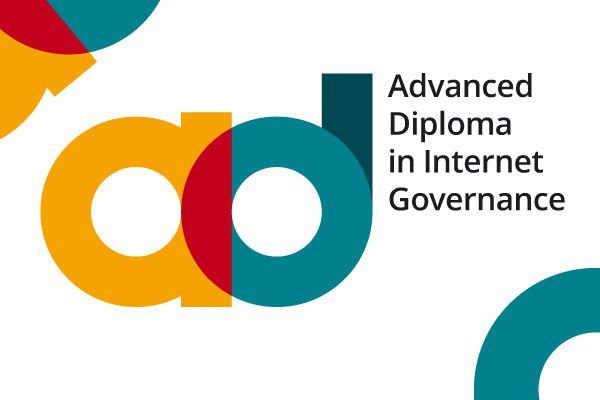
Understanding AI: Why does it matter?
humAInism, IFDT Artificial IntelligenceMany in diplomacy recognise AI’s importance but are unsure how to approach it. Andrej Škrinjarić, director of Education & Training at Diplo, explores what AI can and can’t do, how Diplo is integrating it into diplomatic training, and why it’s crucial to start using it now.

AI & Diplomacy webinar for Portuguese Diplomatic Institute
Faculty, IFDT Webinars Artificial IntelligenceJovan Kurbalija from DiploFoundation conducted a master class on AI and diplomacy for 80 Portuguese diplomats. The session covered AI's influence on global geopolitics, emerging negotiation topics, and tools diplomats utilize. The class sparked engaging discussions and provided insights on adapting diplomacy to new technology and digital challenges.

Science Diplomacy Capacity Development: Where Do We Go From Here? (WebDebate #55)
IFDT Science diplomacyThe text discusses the importance of science diplomacy in addressing global challenges, highlighting the need for capacity development in this field. Questions on enabling actors to benefit, the form of capacity development, and long-term impact are raised. A webinar featuring experts in science diplomacy is scheduled for Thursday, 14th July. Speakers include individuals from various organizations focusing on science diplomacy. The event will be moderated by Dr Katharina E. Höne from Diplo. This session is part of the WebDebates series on the future of diplomacy organized by Diplo within the International Forum on Diplomatic Training framework.

Increasing innovative diplomacy in South Africa
IFDT, Updates Digital diplomacy, Digital foreign policy, Public diplomacy UpdatesPresident Cyril Ramaphosa of South Africa stressed the importance of innovative diplomacy during the 2022 Heads of Missions conference. He highlighted the need for diplomats to embrace digital diplomacy and host targeted seminars to promote South Africa effectively. The conference focused on attracting tourism, trade, and investment, strengthening cultural ties, and enhancing public diplomacy through social media and advanced tools.

Science Diplomacy in 2022: More Cooperation or More Division? (WebDebate #54)
IFDT WebDebates EventsScience diplomacy aims to enhance international cooperation through various tools, fostering mutual understanding and peace. Despite challenges, historical examples like the Apollo–Soyuz handshake and projects such as SESAME in Jordan demonstrate successful collaboration. Recent trends show increased regional efforts in Asia and a growing focus on science diplomacy for evidence-based foreign policies. Cities like Barcelona are becoming key players, and emerging technologies present both opportunities and risks for diplomatic relations. Science diplomacy proves crucial during times of tension or conflict, navigating complex relationships for common goals like addressing climate change.

Science diplomacy: The road ahead in 2022 (WebDebate #53)
IFDT Science diplomacy EventsScience diplomacy has gained importance, particularly in addressing global challenges like climate change and pandemics. While some caution against overly optimistic views, urging for more realistic evaluations and considering geopolitical factors, others advocate for enhancing cross-border collaboration. A WebDebate on March 1st will delve into the future of science diplomacy in 2022, reflecting on lessons from the pandemic, supporting its practice, and setting expectations for its development. Key speakers will share insights, marking the beginning of a series exploring the theory and practice of science diplomacy.

Advanced Diploma in Internet Governance
Access, Alumni, Capacity development, Courses, Critical infrastructure, Cybersecurity, E-commerce and trade, Faculty, guidelines, IFDT, Telecommunications infrastructure Access, AI diplomacy, Artificial Intelligence, Blockchain, Capacity development, Child safety online, Children's rights, Chip diplomacy, Civil society, Cloud Computing, Communication, Consumer protection, Content policy, Critical infrastructure, Critical internet resources, Cryptocurrencies, Cyberconflict and warfare, Cybercrime, Cybermediation, Cybernorms, Cybersecurity, Data and diplomacy, Data governance, Development, Digital business models, Digital diplomacy, Digital divide, Digital identities, Digital legacies, Digital standards, Diplomacy courses and workshops, Diplomatic career, Diplomatic functions and tools, Diplomatic policy analysis, Diplomatic service, E-commerce and trade, E-government, E-tools, Emerging technologies, Encryption, Foreign ministries, Freedom of expression, Gender rights online, Geneva diplomacy, Human rights, ICT diplomacy, Inclusive finance, Infrastructure, Intellectual property rights, Intercultural communication, Interdisciplinary approaches, International organisations, Internet governance and digital policy, Internet of things, Jurisdiction, Legal and regulatory, Liability of intermediaries, Multilateral diplomacy, Multilingualism, Multistakeholder diplomacy, Net neutrality and zero-rating, Network security, Online diplomacy, Online education, Pedagogy, Politics and governance, Privacy and data protection, Public policy, Regional cooperation, Regionalism, Remote participation, Rights of persons with disabilities, Security, Semiconductor diplomacy, Semiconductors, Social media, Sociocultural, Sustainable development, Taxation, Telecommunications infrastructure, Terrorism, Transparency, Trust, Violent extremism CoursesThis ADIG online capacity development programme gives current and future internet policymakers a solid foundation in practical and diplomatic skills, as well as techniques necessary to engage effectively in global policy processes.

#Diplomacy: Internet and social media [A historical journey #10]
IFDT Webinars History of diplomacy EventsThe text discusses how the internet and social media have transformed diplomacy, replacing traditional methods like 'corridor diplomacy' with emails and Zoom meetings. Social media now influences negotiation outcomes. The upcoming masterclass will explore how diplomacy has adapted to these changes and whether the internet signifies a diplomatic revolution or just another step in its evolution. Join the session on November 25th at 14:00 to learn more.

[WebDebate #51] International organisations: Independence under threat?
IFDT WebDebates EventsInternational organisations balance between serving as a platform for states to discuss global issues and acting independently through reports and analyses. Questions arise about the level of autonomy they should have and how to protect this independence from undue influence, as exemplified by recent accusations of data manipulation at the World Bank. In an upcoming web debate on November 2, 2021, speakers will discuss if the independence of international organisations is at risk. The event will feature Amb. Petru Dumitriu and Amb. Asoke Mukerji, focusing on the topic within the context of diplomatic training.

[WebDebate #50] Training cyber diplomats: Tools, gaps, and opportunities
IFDT WebDebates EventsDiplomats must adapt to digital topics, including cybersecurity, commerce, and human rights. Training is crucial to bridge capacity gaps. A study by Diplo found a lack of awareness among cyber diplomats about available training. The upcoming WebDebate will explore existing cyber diplomacy tools, challenges, and emerging issues.

